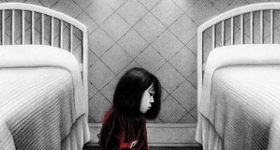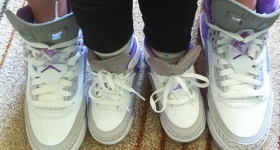I’m not in the company of pianos very often anymore, but
sometimes meeting one in an empty room I’ll place fingertips on keys … not
press down. Letting loose a handful of
notes is too far a cry from the sheets of music I once drilled or sight-read.
When I stopped playing the piano, it took nearly as long to
forget as to learn. Eight years of
weekly lessons and hours of daily practice will linger for a while. But eventually you are empty where the knowledge used to be, if you are determined to delete.
Generally, I hoard things, skills included. It’s a magpie philosophy of the good life: the
slow aggregation of objects, relationships, abilities worth polishing. But piano was always someone else’s
bauble. My parents are immigrants,
middle-class in Viet Nam with aspirations to be so again when they came to America. And to them, piano was what people of a
certain class did. Or rather, what
people meaning to be of a certain class had their children do.
So when their fellow refugee friends came over for
parlor-sitting, jasmine tea and cookies, there would come my eventual trotting out. It was like living in a Victorian novel,
before the invention of TV or stereos, and people entertained each other by playing
instruments. Minus, though, the bosom-baring
dinner gowns; think more organ grinder and monkey.
So much the piano stood for. It was the shape of My Parents’ Sacrifices. They supported a roster of dozens of
relatives back home, for the first two decades of their lives in the US; they set aside, as only the once ruined can, for major purchases and rainy
days. Our brown, carved upright -- the ugliest
but also cheapest piano in the store -- plus the hefty sum they paid to hire the good teacher, together represented our
family’s only regular extravagance. And
when the teacher moved, meaning two or three hours round-trip each Sunday clocked on L.A.’s
405, that gas and my dad’s foot on the brakes were added to the filial
bill. His scowl said This Better Be Worth
It.
But it’s not like I ever asked to play the piano. If I could have asked for something, it would
have been to dance. When I was six or eight
I’d stage my own dance performances for hapless cousins -- doing god knows what without training or music of any
kind. A classmate who lived next door
saw me doing a private ballet
in my living room one night, and asked me about it the next day. I was so mortified it’s as if she’d seen me
with my pants down.
Somehow my parents never noticed. Each year at Christmas and in June my elementary school held student shows, with skits and songs and dance numbers. From third through fifth grade, I was asked
to solo on the piano, or man the xylophone for the group bells number, and
after each show my parents would preen with false modesty in the envy
and praise of other working-class parents. Such a talented daughter! Such lovely
posture! Such great wrist position! Okay, maybe nobody complimented my wrist
position, but I thought they ought to have.
Clearly, these were moments when the sacrificing was Worth
It. But in sixth grade the music teacher
held an audition for two boys and two girls to dance the Charleston. I tried out. The popular girls had told me I should. In hindsight, they hadn’t meant it; they probably figured it'd be
a hoot to watch the nerdy kid with glasses try to dance. But I had no social skills so I thought they
had my best interests at heart.
I won the part, of course, and fairly burst with my own amazement
that evening as I told my parents about the new star of the June show.
“Are you playing the piano?” my mom asked, ice
in her voice.
“I don’t think so…” I
said, very small.
“Then why should we
come?”
Our relationship never really recovered from that
moment. If anything, we had to recover from the relationship. Because this moment wasn’t a misstep in
their parenting that could be rectified or compensated and absolved; it
told me like an X-ray what their parenting was about. They had a template, die-cut for their prestige,
into which I was either to fit, or aside from which I would be found not worthwhile.
This moment held in miniature all the wars we would fight
later, when I was old enough to stop playing the piano forever, and force them
to learn new things to love.
* * *
Ask a Model Minority Suicide is
a Hyphen series on mental health. Introductory post
here.
Resource Guide here.
Go here
to see all posts in this series.
Comments, questions, or stories can be posted below -- or sent privately to Sam at aamms[at]hyphenmagazine[dot]com.









Comments
Thanks for your thoughts. I second your comments on the nebulousness of class in America, and of course also on this problematically narrow use of music we're talking about.
A couple things I'd add, though:
- that actually, the notion that classical music training instills discipiline and good habits useful for success in academics is a big motivator for immigrant parents. And for professors of law at Yale.
- that I wish I'd gentled somewhat, too, the account of my parents' attitudes toward music. Prestige/class was #1, no doubt. But at a distant second was a sincere, if unschooled, enjoyment of it. Every so often my dad used to ask me to play the piano just for him. What it was about piano music he enjoyed was also, I think, not ideologically innocent, but neither was it entirely cynical and self-serving.